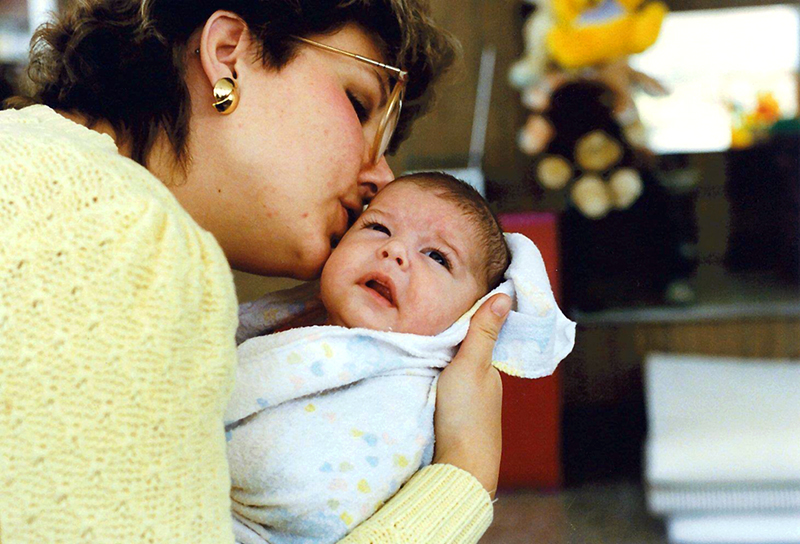
“Making the decision to have a child – it’s momentous. It is to decide forever to have your heart go walking around outside your body.” – Anonymous
I grieved the day our first son was born.
My pregnancy was normal…almost boring. Back then, 1986, we didn’t do regular ultrasounds. I was a healthy 26-year-old. There was no reason for concern. What we didn’t know and could have found in an ultrasound, was that our child had something called Vesa Previa. Basically, part of the umbilical cord branched off when it attached to the placenta. The tragedy occurred when my water broke exactly at that spot. The cord broke and our son, Andrew, lost blood and oxygen. He didn’t breathe for eight minutes. He had almost no brain activity. Eventually, we made the wrenching decision to remove him from life support. To make our journey even more challenging, Andrew continued to breathe on his own.
“If you’ve been through tragedy and tremendous grief, you know that it colors everything that happens after that moment.”
Many of you know families with children with development disabilities. They are often the absolute sunshine of their parents’ lives. Parents become involved in special needs education and activities. We would not experience that journey. Andrew was severely developmentally disabled. He couldn’t communicate, walk, talk or do anything for himself. He was essentially in a vegetative state.
So when I say I grieved when Andrew was born, I grieved the hope of new motherhood. I grieved for the life he would never have. I grieved for everything we would never get to do with him. It truly was as if our baby died when he was born.
To say I was a mess was an understatement. I’d cry folding laundry. I’d cry driving down the street. I’d go to the mall and cry when I’d see very young mothers with healthy babies. I’d ask God why. Why were we denied a healthy child? If you’ve ever had this conversation with God, you know that there’s often no answer.
The answer for me was that the grief lessened and the hurt healed when I stopped grieving over what won’t be and accepted what was. I know that’s not the case for everyone. Every grief journey is different.
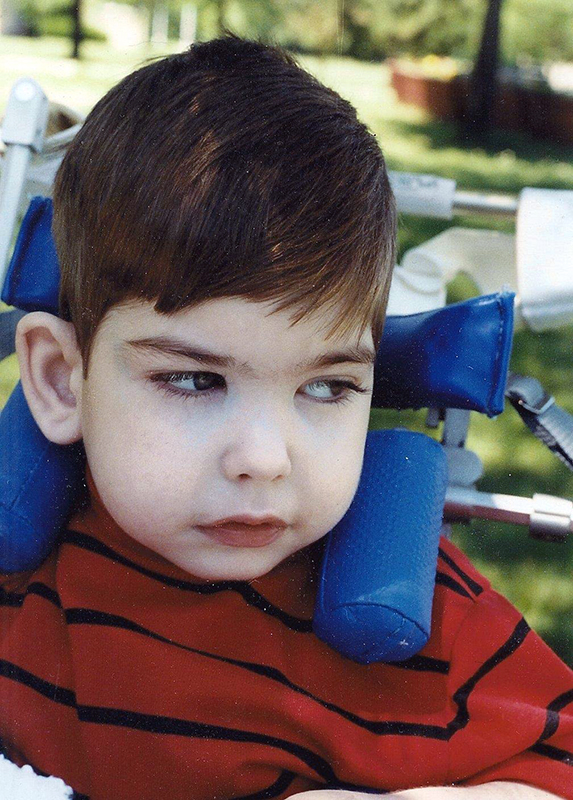
When we asked how long Andrew could survive in this vegetative state, we were told probably five years. Andrew lived 20 years. Because his disabilities were SO severe, because he required 24-hour round-the-clock care, we felt it was best for him to live at Central Wisconsin Center for the Developmentally Disabled. They had the staff and resources to give him the very best care possible. The Central Wisconsin staff couldn’t have been more caring or compassionate. They cared for and loved Andrew like he was their son. When we’d visit, we’d see other children or young adults that lived there. There were so many devastating stories in that place and yet everyone who worked there made it a place of joy and acceptance.
We went on to have two more children – both healthy. They never knew Andrew any other way. They grew up to be incredibly compassionate, sensitive and kind people. Their lives were always different, and perhaps better, because of their older brother.
As the years went by and new friends would find out Andrew’s story, they’d often shed tears for us. I understand why. It’s a very sad story. But to me, there are much sadder stories. We never knew Andrew any other way so it made it easier for us to accept our circumstances. But it’s always been interesting to me to know and hear how many lives our beautiful, fragile son touched.
When Andrew died at 20 years old, I didn’t grieve nearly as much when he was born. He had lived 20 years in a body that was so broken. Years of disability wrought havoc on his bones and muscles. It was a constant battle to keep him pain-free. So when he passed away of pneumonia, I felt a sense of relief that he was now not chained to that shell of a body. I liked to imagine him in heaven running around in a beautiful field in a healthy body.
If you’ve been through tragedy and tremendous grief, you know that it colors everything that happens after that moment. Being Andrew’s mother prepared me for so much in my life. I like to think it especially prepared me for taking care of my parents when they could no longer care for themselves.
As I write this, we are dealing with my 90 year-old mother’s decline and transition into needing more skilled nursing care. I can feel grief peeking around the corner, waiting for me as we navigate these familiar and difficult challenges. My Mom and I have reversed roles and I’m now mothering her, which makes this so hard. Yet I sort of feel battle-hardened for this journey. I’m ready to care, prepare, advocate and yes, grieve. But in a funny way, I’m no longer afraid of grief. I’m 60 and know that life throws lots of curveballs at you. For us, our first curveball was the beginning of parenthood.
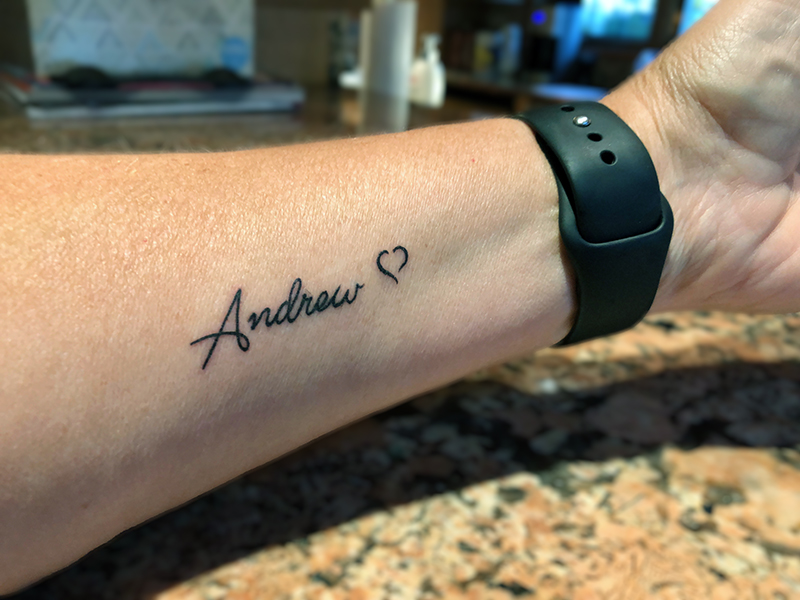
If you meet me, you might notice the tattoo on the inside of my left arm. As much as Andrew’s life is always marked upon my heart, I felt the need to forever mark it on my body. Perhaps as a way to remember him every day. Perhaps as a conversation starter with someone new.
I’ve had friends who have lost children to suicide, cancer or other tragedies. Nothing can prepare you for that depth of loss and grief. Motherhood is challenging under good circumstances. To me, being a parent is hurting 10 times as much when your children are hurting. Some may call that compassion. I call that love.
Karen Waldkirch
A Journey to Grateful Contributor



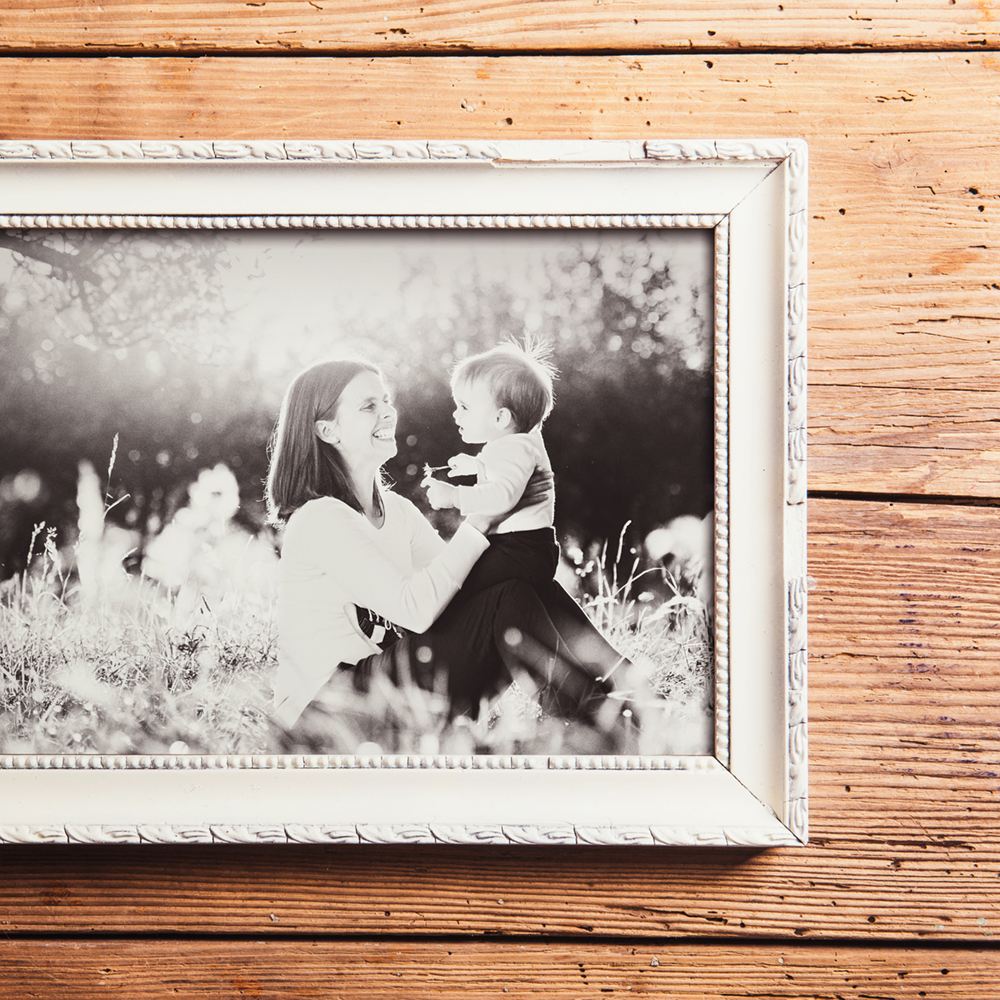
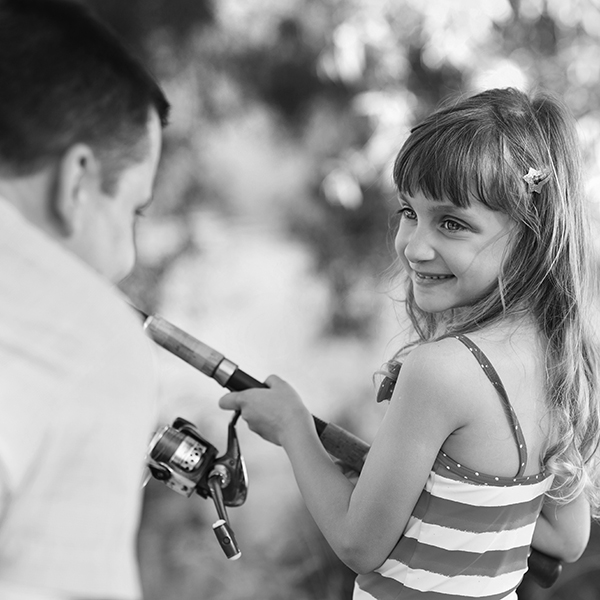

Thank you for sharing your story and being so honest. Many experience a grief of this manner where they feel guilty and don’t express it. I really appreciate you sharing.
What a beautiful story…thank you for sharing it. Someone once said “When we lose our parents we lose our past…when we lose our children, we lose our future.” So true…you had to grieve your future with Andrew right from the beginning. Grief due to child loss does steel a person in some ways for anything ahead. You have survived this, and nothing will ever be worse.